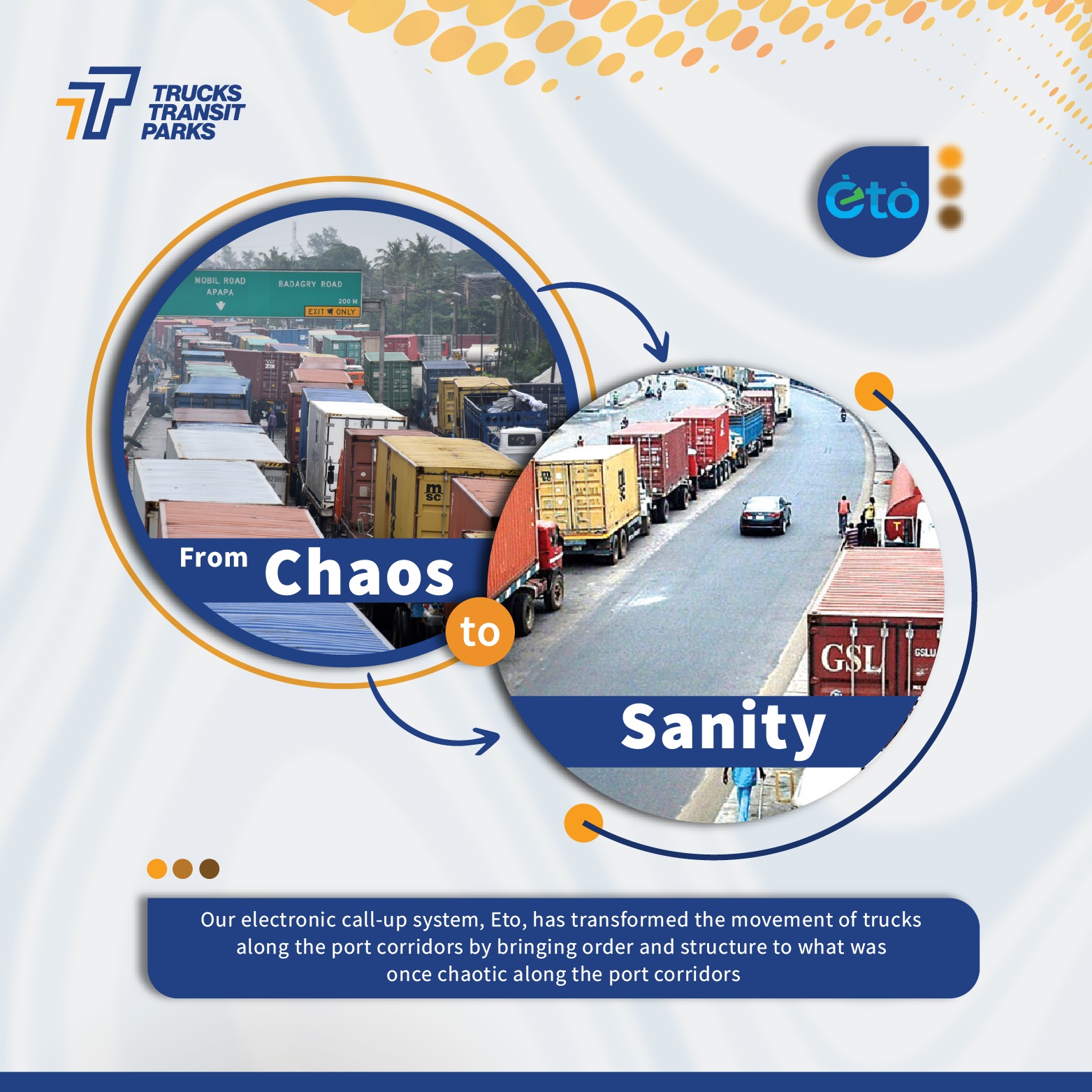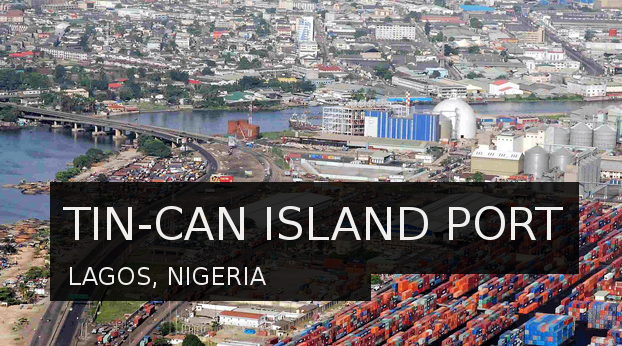General
FG Blames Poor Management for Apapa Port Congestion
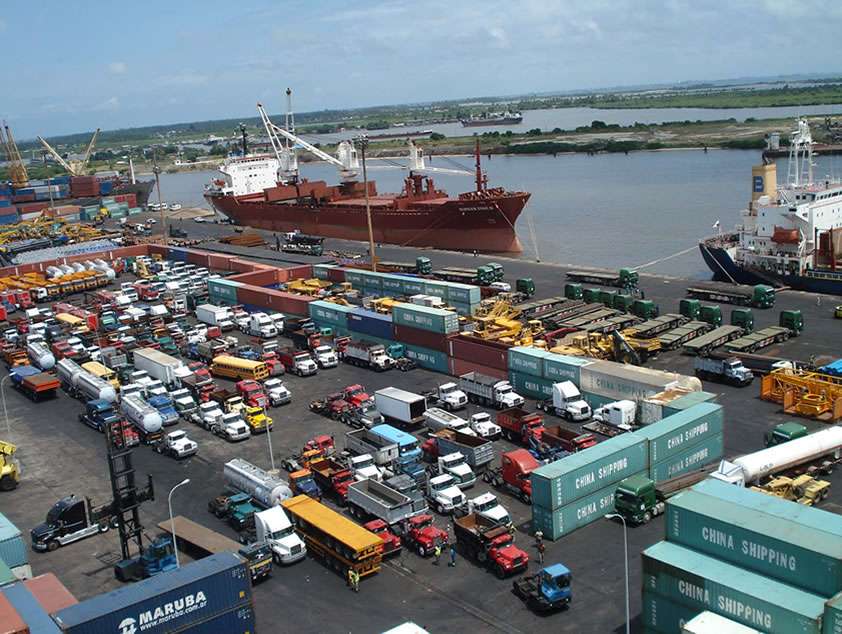
By Adedapo Adesanya
The federal government has said terminal operators responsible for the inefficiency of the Apapa Port must work towards its total reconstruction and reorganisation.
This was made by the Minister of Transportation, Mr Chibuike Amaechi, citing the drastic change in the Port on the day the President visited to commission the Deep Blue Project.
“I was in the train with the president on that day and noticed that everything had disappeared, even inside the port that looked like a marketplace was very well organized, no persons were found loitering about, no trucks. What it shows is that the problem of the seaport is the problem of efficiency.
“If they had the capacity in just one night, because I was there the previous evening, and when I came back in the morning, everything had disappeared; If that can happen in one night, it means that the problem is management, nothing else.
“Do we need to wait for the President to come before we can be efficient?” Mr Amaechi queried.
“What I’ve done was to have a meeting with the terminal operators, and I told them that they have to contribute to the reconstruction of the Apapa Seaport.
“We must rebuild the Apapa Seaport, taking into cognizance all the issues that we are seeing now that is frustrating the seaport, like where do you park the trucks, how many trucks are coming into the seaport at what point in time?
“How can a person come into the seaport who has no business being there, what is he doing at the seaport? The seaport is a security area and it is not for everybody, even me, after my tenure as Minister, I’m not entitled to go into the seaport unless I have business in the seaport,” he added.
The Minister noted that the Ministry of Transportation will partner with the Nigeria Customs Service (NCS) and the Nigerian Ports Authority (NPA) to solve the problem, adding that freighting of cargoes from the seaport through the rail, when it begins, will also help in arresting the situation at the port.
“We are going to partner with customs because they are largely involved. Between them and the NPA, they are the operators (or regulators) of the Seaport and see how to arrest this situation. I believe that when we begin to freight cargoes from the seaport through the rail, we’ll reduce some of the challenges that we have at the seaport,’ he said.
Mr Amaechi also said the recently launched Deep Blue Project is overseen by the Nigerian Maritime Administration and Safety Agency (NIMASA) in partnership with the Ministry of Defence, would not only boost security in the country’s waters but will also improve trade in the Gulf of Guinea and reduce the cost of production for the oil industry while improving revenue for Nigeria’s economy.
“Before we came, various contractors were contracted to provide security for oil companies in the water. There was a case between the government and OMSL in which the company provides about three or four boats to the Navy and they collect $2,500 per vessel for the first day and $1,500 for about 30 days.
In a year, like in 2020, they made about $67 million, and when you hand over the security of a country to individuals, it becomes very challenging and irresponsible. So, the president kindly approved that the police, army, air force, and other security agencies should be involved in providing security with the equipment that we have provided.
“We have about three helicopters, two fixed-wing planes, 17 interceptor boats, two vessels, drones, and more; what it does is that it gives you information about where the criminals are, those who go and destroy pipes just because they are looking for oil to bunker. It provides you that information, then you deter them or arrest them.
“So, we are able to provide security in the coastal region, both on land and on the sea. Now, those who provide the coastal security on land will be the Nigerian Army and the Police, and we’ve provided them with all the necessary tools they need.
“We have ammunitions, we have vehicles, like Armoured Personnel Carriers (APCs) and all that for patrol by the coast. All that, we believe will begin to yield fruits between now and next year.”
He added that by the time the government provide the necessary maritime security, the economy will improve as a result of more money coming into the economy through oil.
“That’s the impact it will have when it comes to the Deep Blue project. In fact, the Israelis who did the training said in 6 months to 1 year, if there is no improvement in the economy in terms of how much comes in, both to NIMASA, NPA, and the oil industry, come back to us and we’ll be willing to refund.
“But you know it is simple mathematics; It is true that the moment you can take away the criminals from the water, and the contractors from the water, then the cost of security which is borne either by NNPC or the oil companies will be part of what will come back to us as income. Then on land, in all our rail and train coaches, you have enough armed policemen in any trip we are making to withstand any criminal attack.”
General
NERC Unveils 3-Step Guide for Resolving Electricity Complaints

By Adedapo Adesanya
The Nigerian Electricity Regulatory Commission (NERC) has introduced a streamlined three-step process to help electricity consumers address common issues like power outages, estimated billing, faulty meters, and voltage fluctuations.
In a public advisory shared on its X handle on Tuesday, the electricity sector regulator emphasised that customers should begin by contacting their respective electricity Distribution Companies (DisCos), which serve as the primary point of contact for technical and billing problems.
Consumers are urged to secure a complaint reference number and maintain records of all interactions for efficient follow-up.
The advisory outlines the process as follows: “Contact your DisCo’s customer care – This is the first step for all technical or billing issues;
“Escalate to State Electricity Regulator (SER) – If unresolved, and the consumer is in a state that has transitioned to an SER;
“Reach NERC Call Centre – For consumers in non-transitioned states or needing further assistance. Contact options include 0201 344 4331, 0908 899 9244, or [email protected],” it said.
“We’re here to make sure your complaint is heard and addressed,” the advisory concluded, aiming to empower consumers amid ongoing challenges in Nigeria’s power sector.
This guidance comes as electricity consumers continue to grapple with service disruptions and billing disputes, highlighting NERC’s efforts to improve accountability across DisCos and state regulators.
General
Senate Passes Electoral Act Amendment Bill After Mild Row
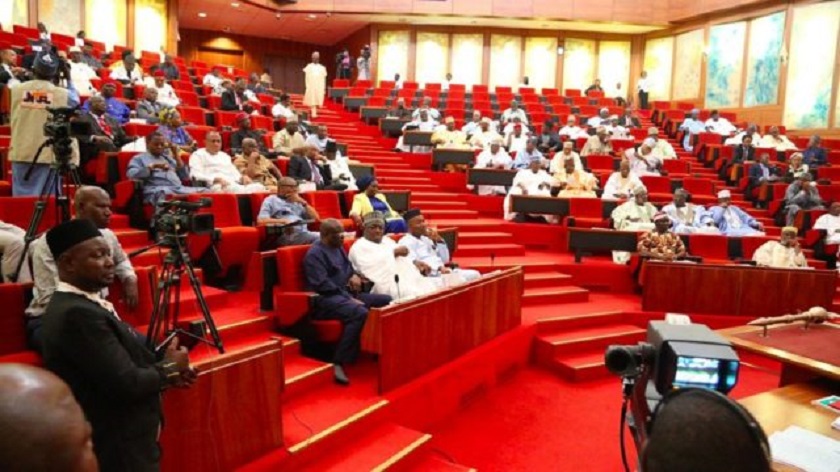
By Adedapo Adesanya
The Senate passed the Electoral Act, 2022 (Repeal and Re-Enactment) Bill 2026 on Tuesday after overcoming a rowdy session that saw lawmakers at loggerheads.
The issue in the upper chamber stemmed from a division over Clause 60 raised by Mr Enyinnaya Abaribe, a member of the opposition party, African Democratic Congress (ADC), from Abia South.
The Senate President, Mr Godswill Akpabio, stated that he believed the demand had previously been withdrawn, but several opposition senators immediately objected to that claim.
Citing Order 52(6), the Deputy Senate President, Mr Barau Jibrin, argued that it would be out of order to revisit any provision on which the Senate President had already ruled.
This submission sparked another uproar in the chamber, during which Mr Sunday Karimi had a brief face-off with Mr Abaribe.
The Senate Leader, Mr Opeyemi Bamidele, then reminded lawmakers that he had sponsored the motion for rescission, underscoring that decisions previously taken by the Senate are no longer valid, maintaining that, consistent with his motion, Mr Abaribe’s demand was in line.
Mr Akpabio further suggested that the call for division was merely an attempt by Mr Abaribe to publicly demonstrate his stance to Nigerians. He sustained the point of order, after which the Abian lawmaker rose in protest and was urged to formally move his motion.
Rising under Order 72(1), Mr Abaribe called for a division on Clause 60(3), specifically concerning the provision that if electronic transmission of results fails, Form EC8A should not serve as the sole basis, calling for the removal of the proviso that allows for manual transmission of results in the event of network failure.
During the division, Mr Akpabio directed senators who supported the caveat to stand. He then asked those opposed to the caveat to rise, to which 15 opposition senators stood.
However, when the votes were counted, the Senate President announced that 15 senators did not support the proviso, while 55 senators voted in support.
Earlier, proceedings in the Senate were momentarily stalled as lawmakers began clause-by-clause consideration of the Electoral Act, 2022 (Repeal and Re-Enactment) Bill 2026, following a motion to rescind the earlier amendment.
The motion to rescind the bill was formally seconded on Tuesday, paving the way for the upper chamber to dissolve into the committee of the whole for detailed reconsideration and reenactment of the proposed legislation.
During the session, the Senate President, Godswill Akpabio, reeled out the clauses one after the other for deliberation.
However, the process stalled when at clause 60, Mr Abaribe raised a point of order, drawing immediate attention on the floor.
This soon caused the session to move into a closed-door session.
Before rescinding the Electoral Act, the red chamber raised concerns over the timing of the 2027 general elections and technical inconsistencies in the legislation.
Rising under Order 52(6) of the Senate Standing Orders, the Senate leader, Opeyemi Bamidele, moved the motion to reverse the earlier passage of the bill and return it to the Committee of the Whole for fresh deliberations.
He explained that the development follows the announcement by the Independent National Electoral Commission (INEC) of a timetable fixing the 2027 general elections for February 2027, after consultations with the leadership of the National Assembly.
He stated that stakeholders had raised concerns that the proposed date conflicts with the provisions of the amended law, particularly the requirement that elections be scheduled not later than 360 days before the expiration of tenure.
He further noted that upon critical review of the passed bill, the 360-day notice requirement prescribed in Clause 28 could result in the scheduling of the 2027 Presidential and National Assembly elections during the Ramadan period.
According to him, holding elections during Ramadan could negatively affect voter turnout, logistical coordination, stakeholder participation, and the overall inclusiveness and credibility of the electoral process.
The motion also highlighted discrepancies discovered in the Long Title and several clauses of the bill, including Clauses 6, 9, 10, 22, 23, 28, 29, 32, 42, 47, 51, 60, 62, 64, 65, 73, 77, 86, 87, 89, 93, and 143. The identified issues reportedly affected cross-referencing, serial numbering, and internal consistency within the legislation.
General
IFMA Nigeria Gets Branch in Oyo, Picks Adejumo Olusola Babatunde as Coordinator
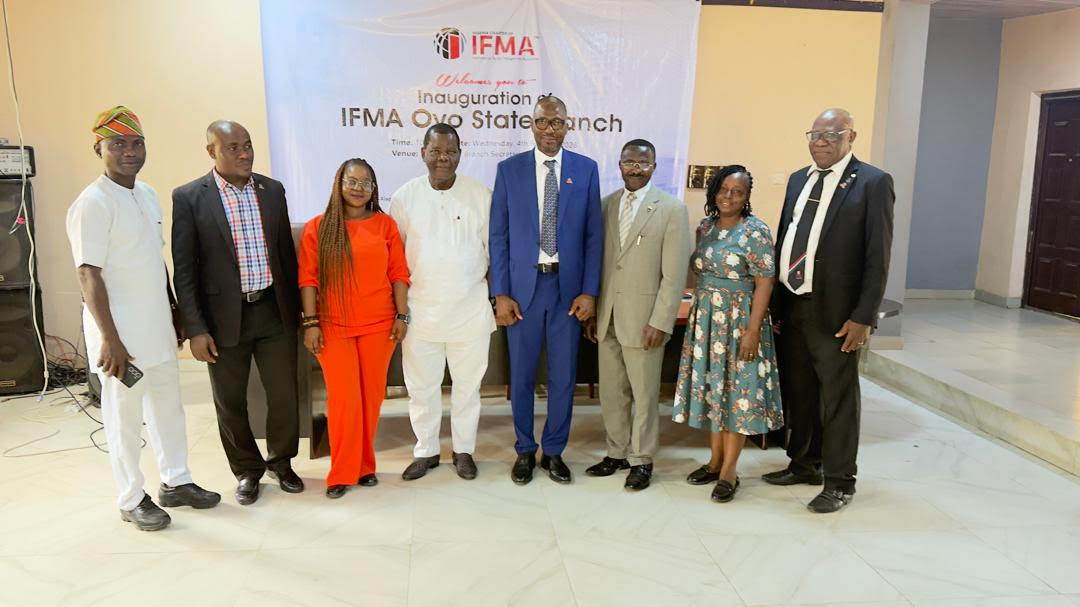
By Modupe Gbadeyanka
A new branch of the International Facility Management Association (IFMA) Nigeria Chapter has been established in Oyo State, with Mr Adejumo Olusola Babatunde chosen as Coordinator.
The organisation set up an arm in the South-West state in a bid to expand its footprint in the country. Mr Babatunde will be assisted by other executive committee members, including Mr Ajiboye Olusola Akeem as Secretary, and Mrs Adeniran Olaide as Treasurer.
At the inauguration of the branch at the Nigerian Society of Engineers (NSE) Secretariat in the Akobo area of Ibadan, the Oyo State capital, the president of IFMA Nigeria, Mr Sheriff Daramola, expressed delight at the successful inauguration of the branch and commended members for their commitment to the growth of facility management in Nigeria.
He highlighted IFMA’s global heritage, noting that the association is supporting over 25,000 members in more than 140 countries worldwide. Mr Daramola emphasised IFMA’s strong global network, the world’s largest and most widely recognised association for facility management professionals, headquartered in the United States and its growing influence in Africa, the Middle East and Europe.
“IFMA members have taken positions of authority across federal, state, and private institutions; IFMA Nigeria is positioned to ensure our professionals are the first choice for global investors entering the Nigerian market,” he stated.
The Legal Adviser of IFMA, Nigeria, Mr Sola Fatoki, who shared this sentiment, said, “Since 1997, when IFMA Nigeria was established, the association has equipped facility management professionals with integrated knowledge spanning human behaviour, infrastructure, and the built environment.”
He encouraged engineers, architects, surveyors, ITC, Technology innovators, data analysts and allied professionals to see IFMA as their professional home and outlined the functions and responsibilities of branch executive committees.
In his remarks, Mr Babatunde expressed gratitude to the national council for the opportunity to serve and pledged to ensure the success of the branch, focusing on unity and the professional advancement of stakeholders in the region.
-

 Feature/OPED6 years ago
Feature/OPED6 years agoDavos was Different this year
-
Travel/Tourism10 years ago
Lagos Seals Western Lodge Hotel In Ikorodu
-

 Showbiz3 years ago
Showbiz3 years agoEstranged Lover Releases Videos of Empress Njamah Bathing
-

 Banking8 years ago
Banking8 years agoSort Codes of GTBank Branches in Nigeria
-

 Economy3 years ago
Economy3 years agoSubsidy Removal: CNG at N130 Per Litre Cheaper Than Petrol—IPMAN
-

 Banking3 years ago
Banking3 years agoSort Codes of UBA Branches in Nigeria
-

 Banking3 years ago
Banking3 years agoFirst Bank Announces Planned Downtime
-

 Sports3 years ago
Sports3 years agoHighest Paid Nigerian Footballer – How Much Do Nigerian Footballers Earn


